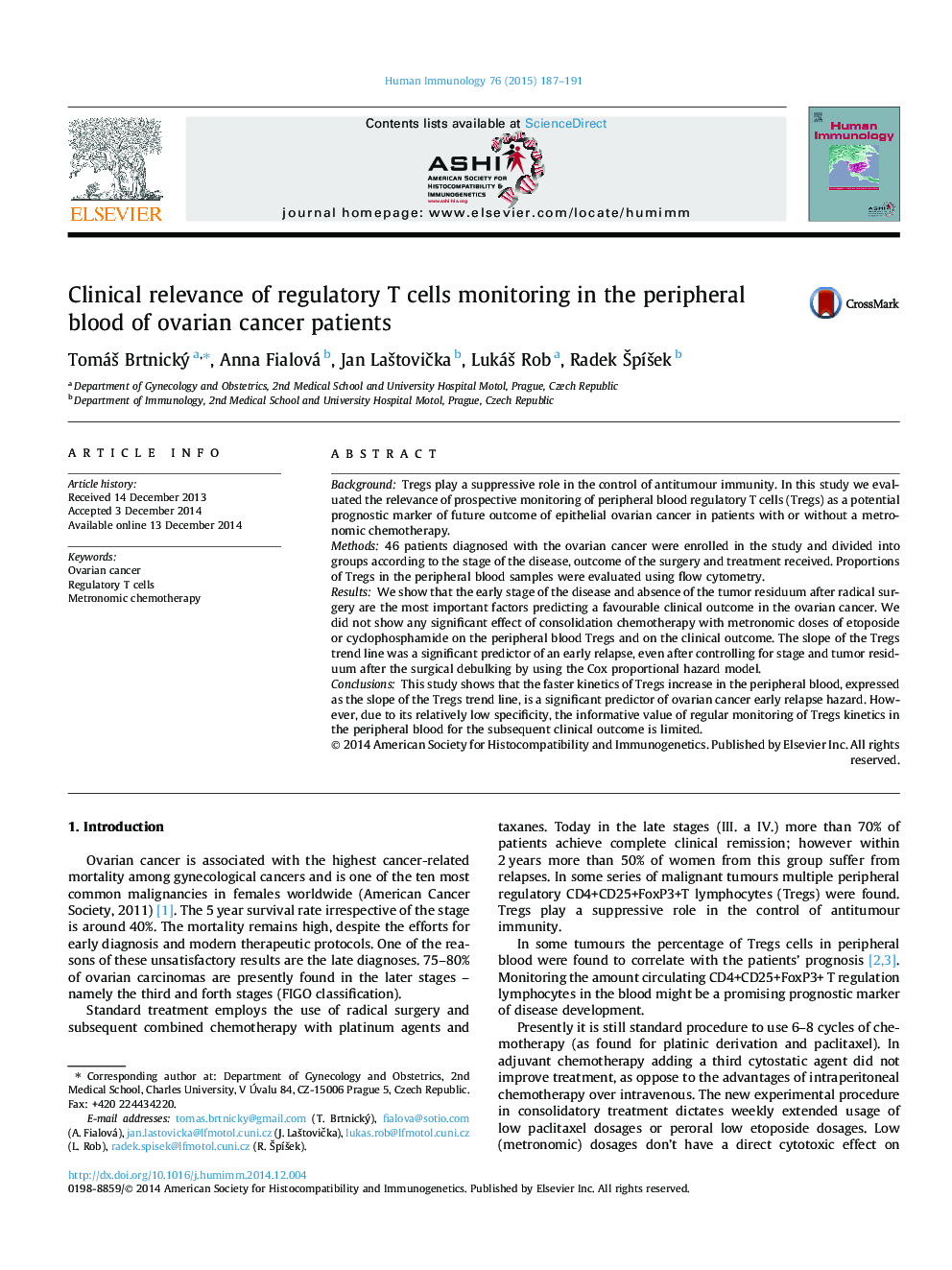| Article ID | Journal | Published Year | Pages | File Type |
|---|---|---|---|---|
| 3350210 | Human Immunology | 2015 | 5 Pages |
BackgroundTregs play a suppressive role in the control of antitumour immunity. In this study we evaluated the relevance of prospective monitoring of peripheral blood regulatory T cells (Tregs) as a potential prognostic marker of future outcome of epithelial ovarian cancer in patients with or without a metronomic chemotherapy.Methods46 patients diagnosed with the ovarian cancer were enrolled in the study and divided into groups according to the stage of the disease, outcome of the surgery and treatment received. Proportions of Tregs in the peripheral blood samples were evaluated using flow cytometry.ResultsWe show that the early stage of the disease and absence of the tumor residuum after radical surgery are the most important factors predicting a favourable clinical outcome in the ovarian cancer. We did not show any significant effect of consolidation chemotherapy with metronomic doses of etoposide or cyclophosphamide on the peripheral blood Tregs and on the clinical outcome. The slope of the Tregs trend line was a significant predictor of an early relapse, even after controlling for stage and tumor residuum after the surgical debulking by using the Cox proportional hazard model.ConclusionsThis study shows that the faster kinetics of Tregs increase in the peripheral blood, expressed as the slope of the Tregs trend line, is a significant predictor of ovarian cancer early relapse hazard. However, due to its relatively low specificity, the informative value of regular monitoring of Tregs kinetics in the peripheral blood for the subsequent clinical outcome is limited.
